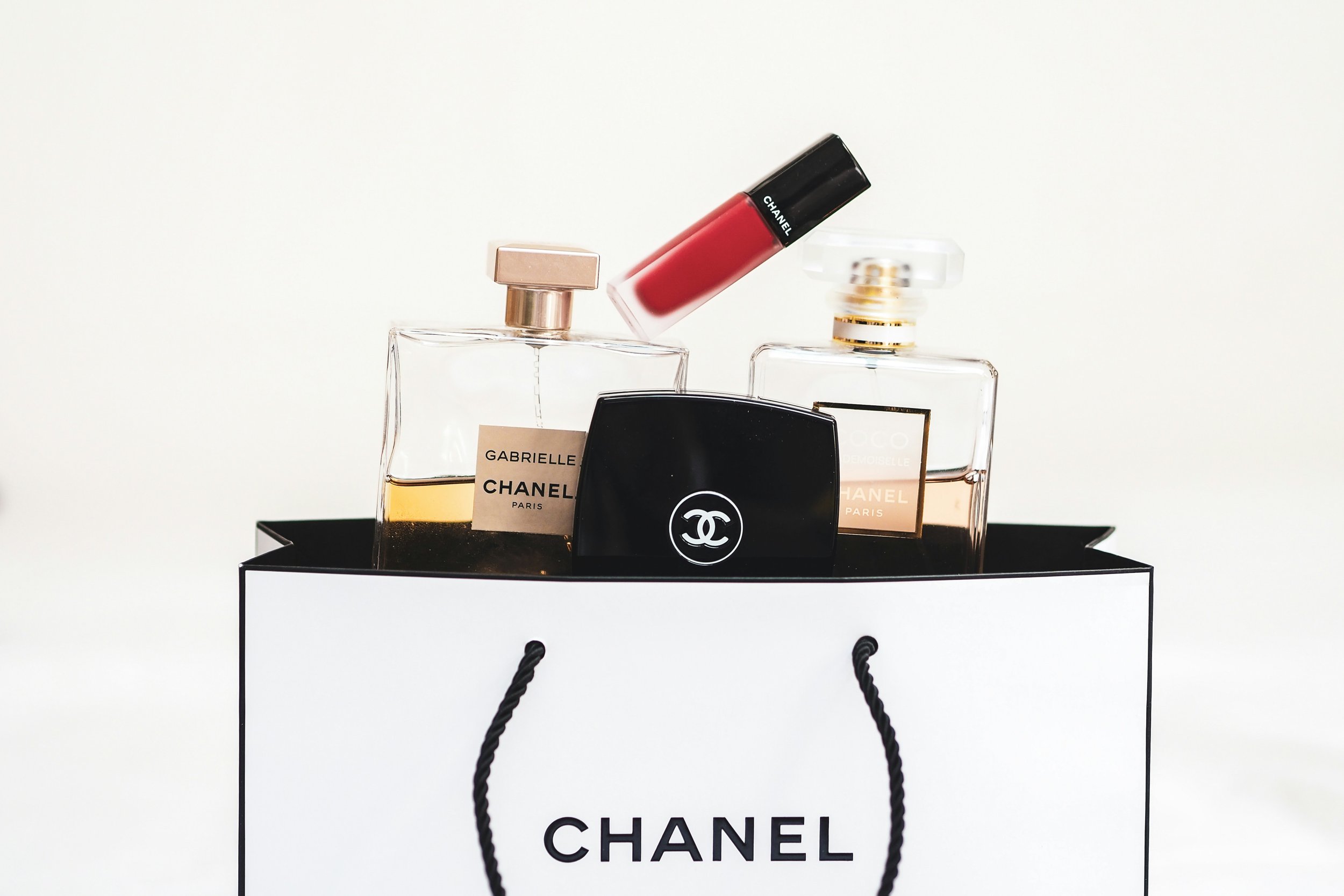Why Our Teenager Shops at Chanel
Image: Laura Chouette
What Our Daughter's First Makeup Purchase Can Teach You About Trademark Law
Last week, I took my teenage daughter Madeleine to buy her first makeup. What started as a simple shopping trip became an unexpected lesson in brand strategy—and a reminder of what trademark law actually protects.
We started at Sephora, where all her friends shop. Within minutes, I watched my daughter shrink. Fluorescent lights washed out her skin. Testers were sticky with fingerprints. Crowds bumped past us. Sales associates were nowhere to be found, and when we did spot one, they were too harried to help. Madeleine touched a few things hesitantly, then stopped touching anything at all. She was retreating into herself the way teenage girls do when they feel unseen.
So we left. Walked to the Chanel counter at Nordstrom.
The difference was immediate. Soft lighting made her skin glow. An associate approached gently, asked questions, and actually listened to the answers. Gleaming surfaces. Chic black and white packaging. She helped Madeleine find a transparent, light, sophisticated look—not Instagram-ready, but quietly confident.
Madeleine sat straighter. Smiled at herself in the mirror—not the performative smile she uses for selfies, but something softer. She felt grown up in the best way.
The Brand Promise—and the Delivery
Here's what struck me: Chanel isn't marketed to teenage girls. The brand targets women like me, with established careers and disposable income. And yet Madeleine responded instantly, instinctively. She recognized something she wanted, even if she couldn't name it yet.
Chanel's brand personality is built on sophistication, elegance, competence, and independence. My daughter isn't the target demographic—but she felt the promise of those qualities in every detail of the experience. The lighting. The attention. The packaging. The care.
Chanel promised an experience. And they delivered.
This Is What Trademark Law Protects
When most people think about trademarks, they think about logos and names. The interlocking C's. The word "Chanel" itself. But trademark protection goes much deeper than visual identifiers.
A brand's real value lies in intangibles: recognition, goodwill, atmosphere, reputation for service. Your brand isn't your logo. It's every touchpoint. Every interaction. Every promise you make—and whether you keep it.
When you build something genuinely distinctive—something that makes people feel a certain way when they encounter it—trademark law protects all of it. The feeling is the thing. The consumer's connection to that feeling is what we aim to protect.
Those interlocking C's? They're just a flag marking the spot where a reliable experience lives.
This is why brand consistency matters so much from a legal perspective. Every time a customer interacts with your brand and has the expected experience, you're reinforcing the distinctiveness that makes your trademark protectable. Every time the experience falls short, you're diluting it.
Quality Isn't Snobbery—It's Strategy
Is it over-the-top to take a teenager to the Chanel counter for her first makeup? Not if you care about quality. Chanel products are well-made and easy to use. The quality is evident, both in efficacy and finish.
This isn't snobbery—it's discernment. And it's never too early to learn the difference between quality and hype.
The same principle applies to your business. When you invest in quality—in your products, your services, your client experience—you're not being precious. You're building brand equity. You're creating the kind of distinctive, reliable experience that trademark law is designed to protect.
What Does Your Brand Promise?
Could Madeleine have learned to apply eyeshadow at Sephora? Of course. But Chanel hit their target demographic after all—a mother eager to pass on a lesson that will outlast any makeup tutorial.
Sophistication and elegance aren't aspirational. They're available now—if you're willing to be discerning about what you accept.
That chic little bag contained lip gloss and blush. What she really took home was a lesson in what it feels like to be treated like the sophisticated woman she's becoming.
That's the power of branding. That's what trademark protects.
So here's the question for your business: What does your brand promise? And are you delivering on that promise at every touchpoint?
If you're building something distinctive—something that makes your clients feel a certain way—it's worth protecting. We can help you develop a trademark strategy that safeguards not just your name and logo, but the entire experience you've worked so hard to create.

